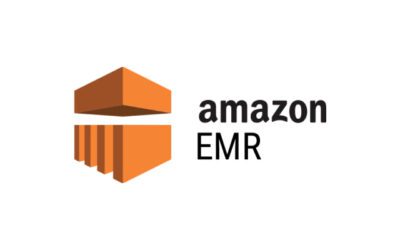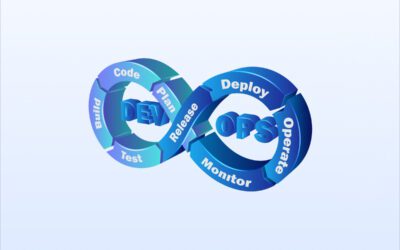Grafana stands out as a widely embraced open-source analytics and visualization platform, celebrated for its versatility in handling diverse data sources and delivering compelling dashboards and graphs. Renowned for its user-friendly interface, Grafana simplifies the process of data interpretation and enhances the overall experience by providing interactive visualizations.
Cloud
Cloud development involves, is where Allcode shines. Our AWS certified engineers develop cloud architecture such as planning, organizing, and designing to implementing and structuring cloud delivery models (Iaas, Paas, Iaas).
What is DevOps and How Developers Benefit
DevOps is a composition of best practices, principles, and company cultural concepts that are tailored to improve coordination in either development or IT teams in an organization. These standards help to streamline and automate the delivery cycle and allow teams to deploy applications sooner. In the case of arising issues, teams can respond faster and develop fixes sooner.
AWS Migration Acceleration Program
The AWS Migration Acceleration Program is offered to help organizations migrate existing applications and workloads to the Amazon Cloud more efficiently. This includes tools, resources, and guidance about the best practices for migration and how to facilitate changes properly without disrupting business operations.
Optimizing DevOps for Cloud-Native Applications
Running DevOps on the cloud is a matter of orienting the developer team to be more receptive to how the advantages of the cloud will be applied. The automation and scaling features of the cloud can significantly develop velocity significantly. There are a number of principles to consider when implementing this type of strategy.
How AWS Business Intelligence Tools Boosts Efficiency
A cornerstone of business intelligence is the data that can be gathered from customer interaction. Gathering data and processing it for relevant information can provide better-informed decisions for business operations. AWS provides tools that can not only automate this process, but make data much more legible and process data more efficiently.
AWS Well Architected Framework for RDS Metrics – AllCode
These are the metrics that you want to monitor in order to assure that you RDS is in running according to the standards for the Well Architected Framework.
Top 5 DevOps Monitoring Tools
Having the right DevOps monitoring tools is important. Not only is it good for picking out bugs and other facets that require improvement, but it helps to better optimize and plan on an application’s continued development. Because DevOps monitoring directly boosts the health of the app and the business, having the right tool for the job matters significantly.
AWS Data Lake and Data Analytics for SMBs
Data lakes are repositories for structured or unstructured data of any capacity or type. With the tools available from AWS, data does not necessarily need to be organized first before running a number of analytics, visualization, or machine learning processes to yield the most optimal results.
Developing an AWS Multi-Account Strategy
There are several good strategic reasons for having multiple accounts tethered to a single AWS environment. For security, governance, and scalability purposes, it is ideal to have a number of accounts working together in an environment for the various employees to have access. Ideally, the following should be incorporated into the environment to make the most of what AWS can offer.
AWS Well Architected Framework DevOps Best Practices
Having a good DevOps loop is crucial for the continuous life cycle of a given application. Until an application project is abandoned, from the moment it is successfully launched, application maintenance is a vicious cycle of gathering user data, adding features, resolving bugs and kinks, and subsequently releasing. AWS does have the capacity to support this, but it’s fairly complex maximizing that efficiency.










